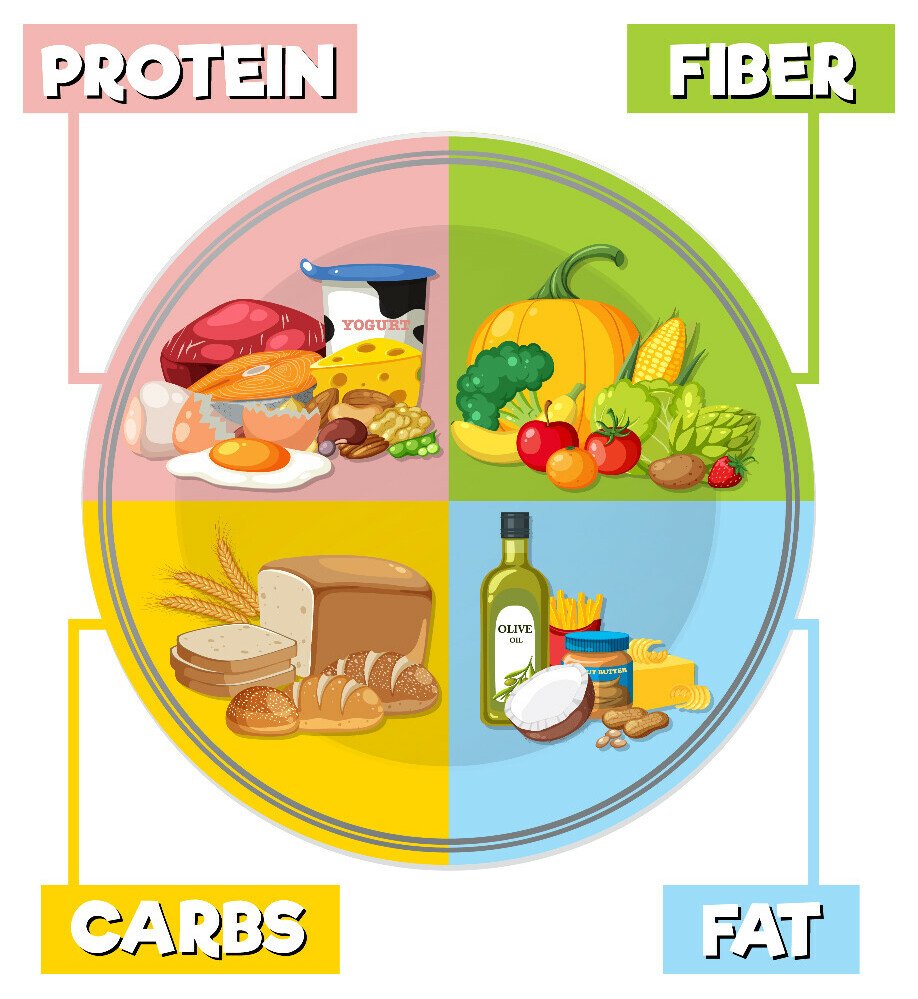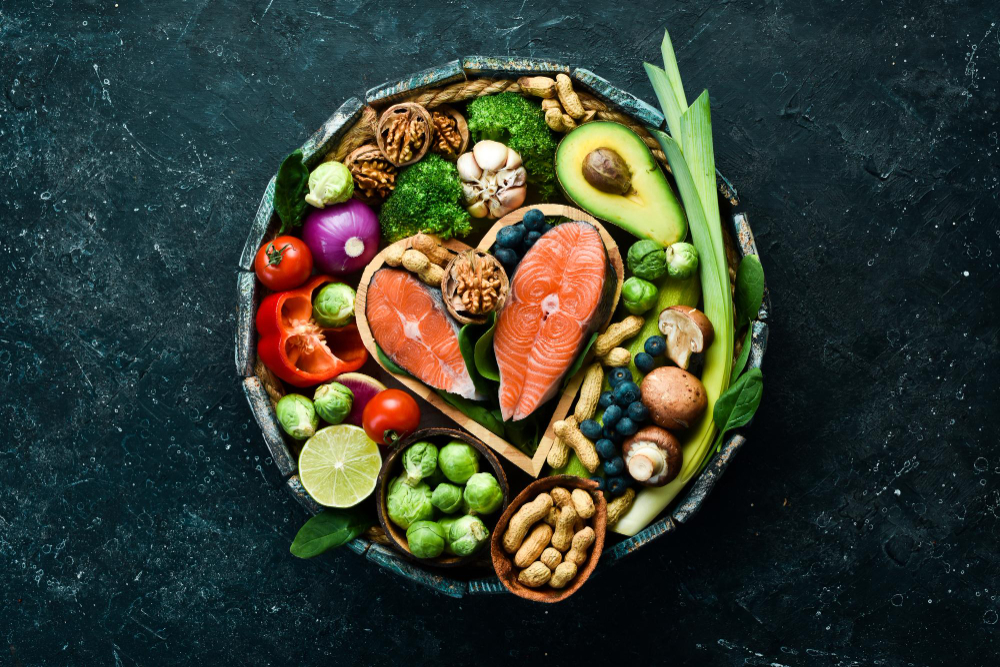The Vital Role of Nutrition in Healing: Empower the Body
When I talk about healing, I mean the complex and dynamic process through which the body repairs and regenerates itself after injury or illness. Healing isn’t merely about closing a wound or mending a bone; it’s a comprehensive orchestration of cellular activities to restore function and structural integrity. And the role of nutrition in healing is integral.
The body has a remarkable ability to heal itself, a fact that never ceases to amaze me. From minor cuts to more significant physical traumas, a cascade of biological processes jumps into action. These mechanisms include stopping the bleeding, fighting infection, repairing tissues, and remodelling them to regain strength.
Among the many factors influencing how well and how quickly we heal, nutrition stands out as a cornerstone. Adequate nutrition provides the raw materials needed for rebuilding tissues and supports the energy requirements of the whole process. Without the right building blocks from what we eat, the body can’t execute the repairs as efficiently as it might. This understanding segues effortlessly into a closer examination of the specific nutrients that play starring roles in the healing drama.
Contents
- 1 Macronutrients: Building Blocks For Recovery
- 2 Micronutrients: The Unsung Heroes
- 3 Hydration: The Foundation of Cellular Health
- 4 Nutrition for Specific Healing Scenarios
- 5 The Gut-Health Connection to Recovery
- 6 Challenges and Considerations in Healing Nutrition
- 7 Creating a Meal Plan Mindful of the Role of Nutrition in Healing
- 8 Summary
Macronutrients: Building Blocks For Recovery
Adequate nutrition is vital for the body’s recovery, with macronutrients playing a crucial role. Consider macronutrients as the pillars supporting a building; they’re indispensable for a solid and robust structure.
Proteins are the cornerstone of healing. They rebuild damaged tissues and support immune function. Our bodies cannot produce essential amino acids, which must come from dietary sources such as meat, dairy, or plant-based alternatives.

We need to understand carbohydrates as more than just energy suppliers. Yes, they fuel the healing process, but they also spare proteins from being used as an energy source, freeing them to focus on repair work. Whole grains, fruits, and vegetables are excellent carbohydrate choices.
Aside from being calorie-dense, healthy fats play a specific part in healing. They form the building blocks of cell membranes. A critical component of the healing process, they are instrumental in managing inflammation. Sources like avocados, nuts, and olive oil provide these essential fats.
Each macronutrient has a specific function, yet all work harmoniously to aid recovery. Providing the body with the optimal balance of these nutrients is vital for effective healing.
Micronutrients: The Unsung Heroes
While the spotlight often shines on macronutrients for their more critical contributions to our diet, micronutrients play a pivotal yet understated role in the healing process. These include a variety of vitamins and minerals that support and accelerate the body’s recovery.
Vitamins, for instance, are essential for wound healing. Vitamin C, famous for its role in immune function, is also a key player in producing collagen, the foundational structure for repairing skin and tissues. Likewise, vitamin A helps fight against infections and is crucial for maintaining healthy skin, reducing the risks of wound complications. Also, we should be more aware of minerals. Zinc, often found in meat, dairy, and legumes, supports numerous enzymes to heal damaged tissues. Apart from its well-known impact on bone health, calcium assists in nerve signal transmission and blood clotting, both vital to recover from injuries.

Antioxidants also deserve mention for protecting the body’s cells during healing. Stimulated by injury and stress, free radicals can slow the repair process. Still, antioxidants such as vitamin E and selenium can neutralize these potentially harmful molecules, facilitating smoother recovery.
The synergy of these micronutrients reinforces the significance of a diversified and nutrient-rich diet to enable efficient healing. Striking the right balance through various sources ensures the body can leverage the full spectrum of available micronutrients for optimal recovery.
Hydration: The Foundation of Cellular Health
You may not immediately connect drinking water with healing, but hydration plays a pivotal role while recovering. Every cell in your body requires water, so your hydration needs can skyrocket when you’re in healing mode.
Water does much more than quench your thirst. It acts as a medium for transporting nutrients to the sites that need them and for flushing out the waste products that your cells produce. Imagine it as the river that carries the boats (nutrients) to the towns (cells) and takes the trash away (waste products).
Ensuring adequate fluid intake is critical after sustaining an injury or undergoing surgery. Proper hydration creates optimal blood volume, which means oxygen and nutrients can travel more effectively throughout your body. This optimized circulation is crucial for promptly delivering the fuel required to repair damaged areas.
Dehydration, however, can slow down the healing process significantly. It can cause your blood to thicken, reducing its efficiency in transporting vital elements needed for repair. Moreover, dehydration can weaken your immune system, making you more susceptible to infections—a risk you can’t afford when your body works hard to heal.

Staying on top of your hydration isn’t just about the amount you drink. Monitoring the colour of your urine can be a helpful indicator; pale yellow typically means you’re well-hydrated, while a darker colour suggests you may need to increase your fluid intake.
REMEMBER: While water is essential, balance is critical. Overhydration can be just as detrimental as dehydration. Electrolyte imbalances can impair cell function. Aim for steady, consistent, and timely intake rather than overwhelming your system with a large volume at once.
Nutrition for Specific Healing Scenarios
Everyone’s healing journey is unique, especially when considering different injuries and surgeries. Nutritional strategies need to be customized to suit individual scenarios.
Nutrition after surgery can be rather specific. Your body requires more calories and proteins to repair tissues and prevent infections. An emphasis on lean meats, legumes, and dairy can boost the needed protein, while fruits and vegetables rich in vitamin C and zinc can aid in wound healing and immune function.
Focusing on a diet promoting skin integrity is crucial when dealing with chronic wounds, such as ulcers or long-term soft tissue injuries. Vitamins A and C, proteins, and zinc are vital nutrients that support skin health and facilitate damaged tissue renewal.
People recovering from bone fractures or musculoskeletal surgeries will benefit from increased calcium and vitamin D intake to fortify bone strength. Foods like fortified milk, leafy greens, and fatty fish can help meet these needs. Additionally, incorporating vitamin K and magnesium can assist in bone health and reduce the time it takes to heal.
In every case, developing a meal plan with a healthcare provider is advisable. They can pinpoint your specific needs and align your diet for optimal healing. Also, remember to be patient with your body; healing takes time, and your nutritional needs may change as you progress.
The Gut-Health Connection to Recovery
It’s become increasingly clear that gut health is a cornerstone of well-being. The gut microbiota, a complex community of microorganisms in our digestive system, plays a pivotal role in the body’s immune response, including the healing process.
Disruption of the balance of gut microbiota may impair the immune system and slow healing. Probiotics are the beneficial bacteria, and prebiotics are the food that feeds these bacteria. Both are vital for nurturing a healthy gut environment.
Incorporating foods rich in probiotics, such as yogurt, kefir, and fermented vegetables, can help replenish and maintain a balanced gut microbiota. Prebiotic-rich foods like garlic, onions, bananas, and oats support the growth of these beneficial bacteria.
Maintaining gut health isn’t just about what types of food you eat. Regular meal patterns, adequate fibre intake, and using antibiotics only when necessary contribute to a stable and healthy gut ecosystem.

Remember, a thriving gut microbiota isn’t just about faster recovery. It’s about laying the foundation for a resilient immune system that can fend off infections and support the healing of tissues and organs.
Challenges and Considerations in Healing Nutrition
When it comes to healing, nutrition is a powerful ally. But it’s not always straightforward. Specific challenges may arise, and navigating these obstacles is vital for optimal recovery.
Malnutrition is a serious concern that can delay healing. A body lacking essential nutrients is like a construction site running low on building materials: progress stalls. I’ll discuss how to identify malnutrition and ways to address it to get your healing back on track.
Dietary restrictions pose another hurdle. Allergies, intolerances, and personal or medical nutritional requirements can restrict access to certain healing nutrients. Knowing how to obtain these nutrients from alternative sources without compromising your health goals or dietary principles is critical.
Be wary of over-supplementation. It’s tempting to think more is better, but with nutrients, balance is vital. Some vitamins or minerals can be harmful when taken in the wrong doses. In another post, I’ll cover the signs of nutrient toxicity and safe ways to supplement your diet.
Healing is not a one-size-fits-all process, so advice from this section should guide you, not dictate rigid rules. It’s always wise to consult a healthcare professional before making significant changes to your diet, especially when healing.
Creating a Meal Plan Mindful of the Role of Nutrition in Healing
Embarking on a journey toward recovery involves respecting the intricate relationship between our bodies and the foods we consume. A well-designed meal plan can be a powerful ally in your quest for healing. To craft such a plan, ensure it contains the proper nutrients to support tissue repair, immune function, and overall health. Diversity in your diet supplies a broad range of necessary vitamins and minerals and keeps meals interesting. Dietary diversity can be essential when your appetite diminishes due to illness or recovery from surgery.
Incorporate plenty of fruits, vegetables, whole grains, lean proteins, and healthy fats. Each of these food groups brings something unique to the table. Fruits and vegetables are rich in antioxidants and essential nutrients. Whole grains provide the fibre that’s crucial for gut health. Lean proteins are the cornerstone for rebuilding tissues, and healthy fats help tamp down inflammation that can impede healing.

Still, remember that the best meal plan is one that complies with any dietary restrictions and adapts to your personal preferences. It would help if you had sufficient nutrients and the discipline to stick to the plan. If you face challenges in managing your diet, don’t hesitate to contact a dietitian or a healthcare professional. They can help tailor a meal plan to meet your specific needs. They may also provide support if you’re dealing with any eating difficulties.
I cannot stress enough the importance of collaborating with healthcare providers to ensure your healing diet aligns with your treatment plan. Their expertise can offer reassurance that you’re taking steps that contribute positively to your recovery. So, while it may require effort and attention to detail, creating and adhering to a healing-focused meal plan is a critical strategy in your recovery arsenal. It’s not just about what you’re eating—it’s about nourishing your body to support and amplify your healing.
Summary
The body can heal itself, but adequate nutrition is vital for the body’s recovery. Macronutrients like proteins, carbohydrates, and healthy fats are crucial in rebuilding damaged tissues and supporting immune function. Micronutrients like vitamins and minerals support and accelerate the body’s recovery. Hydration is also essential for healing as every cell in the body requires water, and it acts as a medium for transporting nutrients to the sites that need them and for flushing out the waste products that your cells produce.
Resources:
https://www.who.int/health-topics/nutrition
https://www.tewhatuora.govt.nz/our-health-system/preventative-healthwellness/nutrition/




